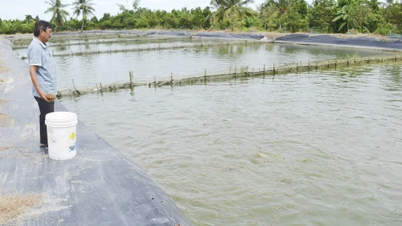The Ministry of Finance said that the above-mentioned VAT rate, when applied, is expected to reduce state budget revenue by about VND 21,000 billion/year (in 2024, revenue from personal income tax will be VND 186,300 billion, equivalent to 9.12% of total budget revenue).
According to the current Personal Income Tax Law, if the consumer price index (CPI) fluctuates by more than 20% compared to the time the law takes effect or the time of the most recent adjustment, the Government must submit to the National Assembly Standing Committee an adjustment of the personal income tax rate. Meanwhile, according to the General Statistics Office, compared to 2020 (the time of the most recent adjustment of the personal income tax rate), it is expected that by the end of 2025, the cumulative CPI will fluctuate by more than 21%.
Associate Professor, Dr. Dinh Dung Sy, a legal expert, said that based on the CPI growth rate and average income per capita in recent years, the 40% increase in the family income tax rate is reasonable. However, the family income tax rate for dependents of 6.2 million VND/month is low. For developing countries like Vietnam, many people still have difficulties due to low income, so to ensure people's lives, it is necessary to raise the family income tax rate for dependents higher, about 50% compared to the family income rate of taxpayers, equivalent to 7.5 million VND/month is appropriate.
Besides, there are also opinions that it is necessary to consider adjusting the VAT rate and tax payment rate not to apply to all subjects and regions, because currently the minimum wage is also divided by region.
In 2025, people will face many difficulties due to the impact of natural disasters, storms and floods, and price fluctuations (CPI is expected to increase by over 21%), so policies need to contribute to creating incentives for taxpayers to accumulate, consume, and promote economic growth. If the adjustment is made in the 2026 tax period and finalized in the first quarter of 2027, taxpayers will continue to suffer for another year, while the cost of living has increased sharply.
Tax policy needs to be one step ahead of price developments, so applying the VAT from 2026 (applied to tax settlement in 2025) is reasonable because it is both timely and feasible, creating a stepping stone for people and businesses in the context of continuing rising living costs. This is also how fiscal policy demonstrates its role as a "companion" to taxpayers, contributing to maintaining social stability and nurturing sustainable revenue sources for the state budget.
Source: https://www.sggp.org.vn/chinh-sach-chua-dong-hanh-voi-nguoi-nop-thue-post819094.html


![[Photo] National Assembly Chairman Tran Thanh Man attends the VinFuture 2025 Award Ceremony](/_next/image?url=https%3A%2F%2Fvphoto.vietnam.vn%2Fthumb%2F1200x675%2Fvietnam%2Fresource%2FIMAGE%2F2025%2F12%2F05%2F1764951162416_2628509768338816493-6995-jpg.webp&w=3840&q=75)

![[Photo] 60th Anniversary of the Founding of the Vietnam Association of Photographic Artists](/_next/image?url=https%3A%2F%2Fvphoto.vietnam.vn%2Fthumb%2F1200x675%2Fvietnam%2Fresource%2FIMAGE%2F2025%2F12%2F05%2F1764935864512_a1-bnd-0841-9740-jpg.webp&w=3840&q=75)








































































































Comment (0)